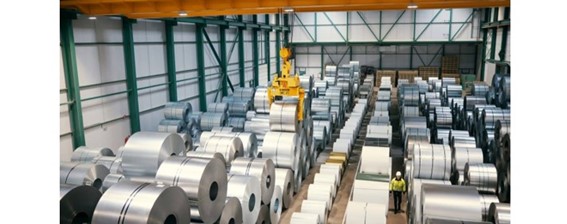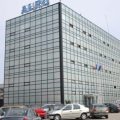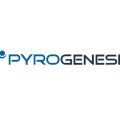Despite finding itself in an extremely challenging environment, the German aluminum industry has been able to look back on a strong 2021. Production and incoming orders in Germany have increased compared to 2020, the Aluminium Deutschland association notes. This underlines the solution competence and the growing importance that the material aluminum already has in the transformation of industry as well as society. However, risks increased significantly over the past year and will continue to put pressure on companies in 2022.
From this association they add that German companies in the aluminum industry produced more in 2021 than in the previous year. The semis sector in particular grew significantly last year, with around 2 million tons representing almost 10% more rolled products coming off the strips than in 2020.
In addition, with an output of almost 610,000 tons and a growth of an impressive 20%, German extrusion plants almost reached the highest level ever since 2007. Crude aluminum production remained stable at around one million tons, however, the drastic increase in energy prices in particular led to a significant decrease in production in the fourth quarter of 2021. Also, the turnover of companies recovered significantly after the 2020 crisis (+23 percent) with a value of 21.7 billion euros almost reached the 2018 level again.
Hinrich Mählmann, personally responsible partner of OTTO FUCHS KG and President of Aluminium Germany, emphasizes: “The German aluminum industry has returned to growth in a difficult market environment. On the one hand, this underlines the attractiveness of the material in the eyes of our customers, especially on the road to a climate-neutral industry. It also shows that German plants are highly efficient in a very tight competition.”
Even if the German aluminum industry fared comparatively well in the second year of the pandemic, 2021, the waters have become much more turbulent recently. Due to the recent drastic increase in electricity prices, the energy-intensive industry is increasingly up against the wall. In addition, recently suspended anti-dumping duties on specialty flat-rolled products from China place local producers at a significant competitive disadvantage.
Mahlmann argues that “the recent explosion in energy prices is putting enormous pressure on companies. Politicians must ask themselves whether the German economy wants to become even more dependent on imports from sometimes unreliable trading partners when it comes to an increasingly relevant material such as aluminum. We support the climate protection goals in Germany and Europe, however, we cannot decarbonize energy production in Germany on our own.”
Marius Baader, CEO of Aluminium Germany, concludes by adding that “pent-up demand should materialize and generate accelerated growth. The German aluminum industry has a clear strategy and remains an important development partner for its customers’ industries in Europe and Germany.”















